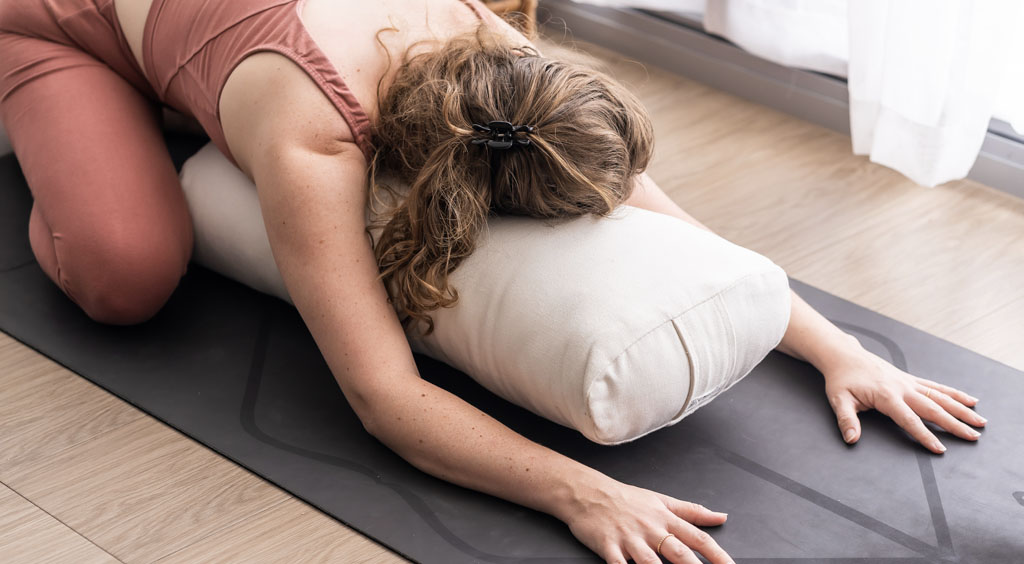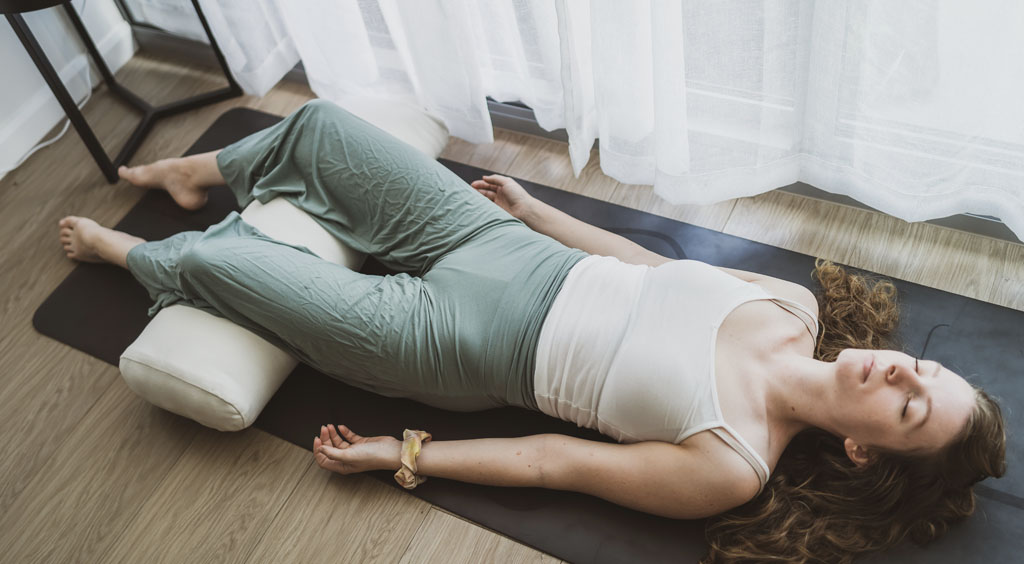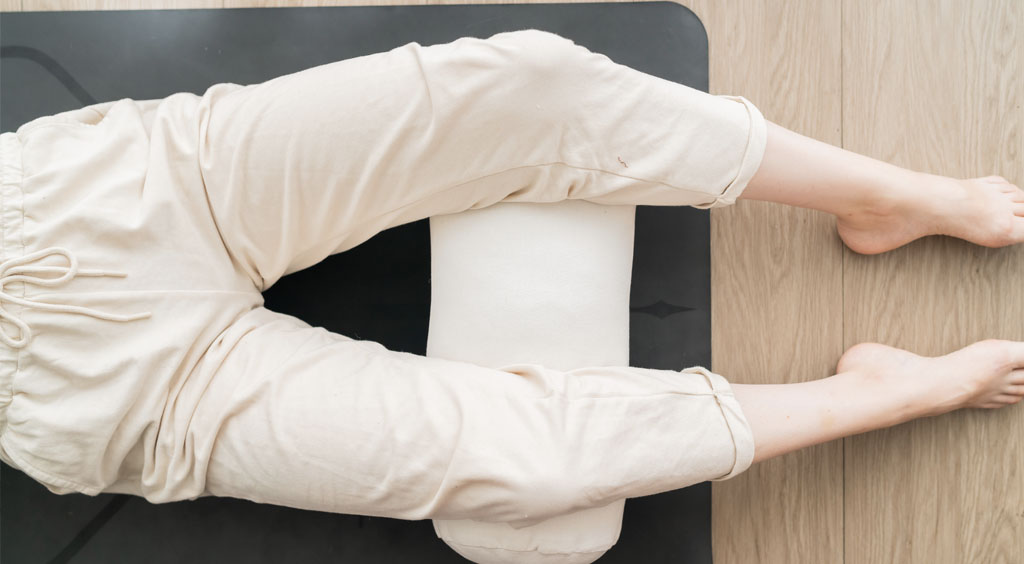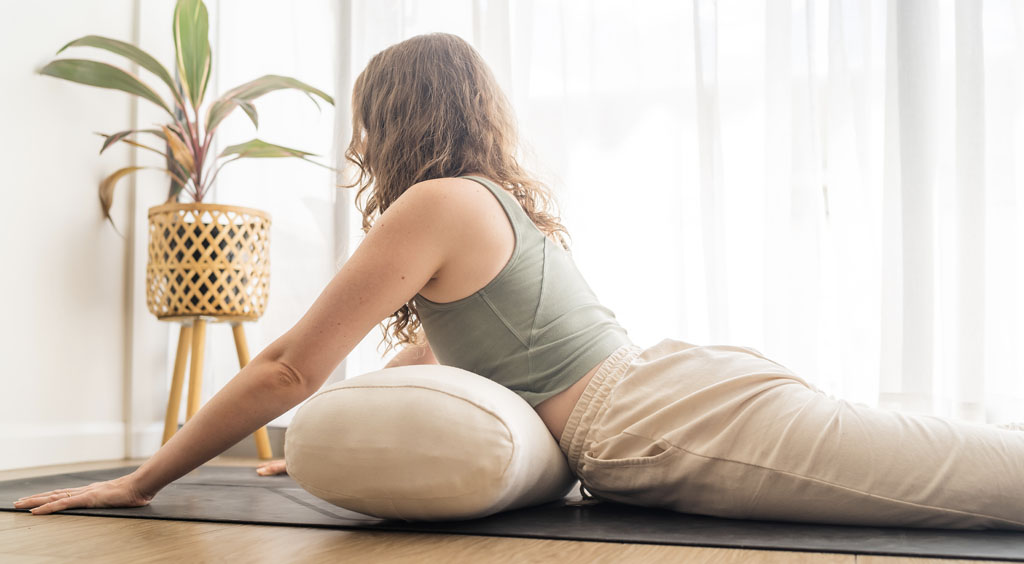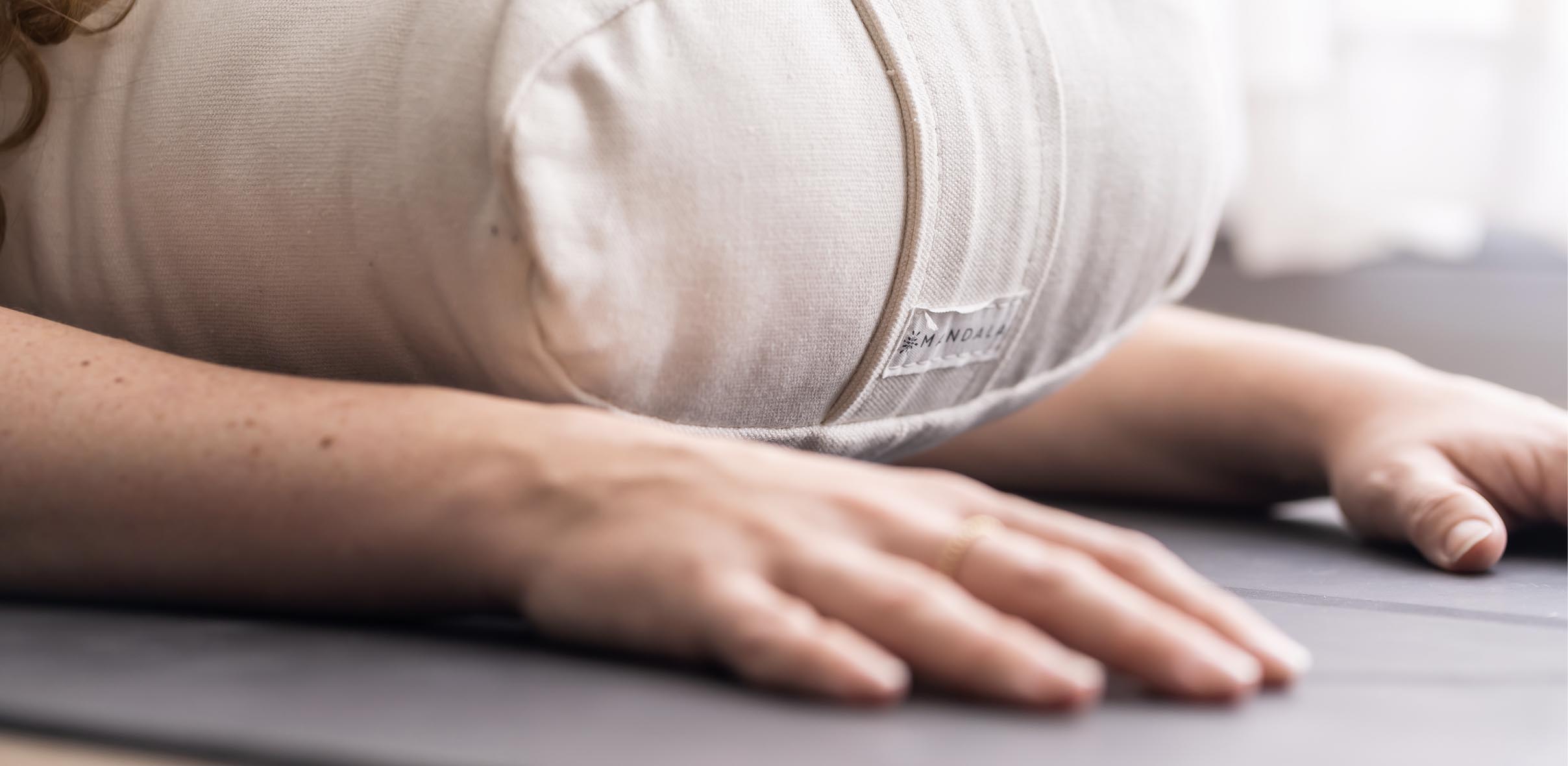One of the easiest and most accessible meditation techniques is mindful breathing meditation. Breathing forms the foundation of many meditation styles. I use breathing in my guided visualisation meditations; in the beginning for warming-up, and throughout to breathe in chi and to re-focus awareness.
Mindfulness is a form of meditation where you focus your attention on something in the present moment. According to Buddhism, meditation aims to bring the mind home and using breath is the wonderful gateway to clarity and peace of mind.
It is the simplest and easiest because your breath is always with you. You have the choice to nurture it and tap into its power at any time.
The simple art of breathing can transform your quality of life.
Here are 3 easy steps to start your own mindfulness meditation practice using your breath.
1. Find your pose
- Seat yourself comfortably with your back upright. You can sit in a chair with your feet firmly planted on the floor, or sit on the floor using a bolster or cushion.
- Arms resting in your lap or by your side.
- Gently close your eyes.
- Aim to be relaxed but alert.
2. Focus on your breath
- Focus your attention on your breath.
- You can begin with a deep breath in, filling your lungs with fresh air. Then breathe out deeply, exhaling heavy thoughts and feelings that you no longer need.
- Then, continue to focus on your natural breath for the duration of your meditation.
- If you feel yourself drifting or dozing, gently bring yourself back to your breath. Taking a deep breath and straightening your spine can help to re-focus.
- If it feels uncomfortable, confusing or challenging, simply observe your feelings, and remind yourself that all you need to be aware of is your breath. Your breath is your anchor.
It helps to give your mind something to do; breathing is the simplest but if you require a different focus there are other easy techniques. If you require a silent mantra, you can create your own or try “I breathe in life”, and “I breathe out heaviness”.
If you would like to try simple visualisations, imagine each in-breath is like drawing in bright, dazzling light from a sun high above you in a clear, blue sky. And each out-breath is letting go of smokiness, dust or dark particles that fall away from you. Or try imagining your breath is like the waves lapping the shoreline of a beach, gently, continually flowing in and out.
3. Make peace with your thoughts
- It is unlikely that your mind will be quiet, it may even seem noisier once you stop to meditate.
- Simply let your thoughts come and go. Try not to add to them or attach yourself to them; they are your thoughts, they are not you.
- Listening to your breath is your point of focus to bring yourself away from your thoughts. Over time, this helps to provide clarity and quietness.
- It may not always feel easy to focus on the breath when your mind is busy, but by experiencing a regular practice of mindful breathing, know that you are receiving the benefits1 of meditation.
- Don’t be concerned if you think you haven’t meditated well, or be overjoyed if you think you have done an excellent job. Let judgement of your meditation performance be one of the things that you let go (or breathe out!).
How long should you meditate? Try this simple mindfulness meditation focussing on your breath for 5 min, 10 min or more, once or twice a day. If you miss a meditation, don’t be worried or discouraged, simply start again the next day. It’s called a practice for a reason, you just keep trying!
Studies have shown that a regular practice has benefits after just eight weeks.2
After incorporating a daily mindful meditation practice into your routine for a few days, continue for a month. Notice how it affects your mind, body and spirit, and your enjoyment of life.
Go on, press the re-start button & give yourself a little time-out to breath
If you want to read more or deepen your meditation practice, How to start a Meditation practice in 10 steps
By Janelle – Golden Path Guided Visualisations
References:
1. LiveandDare.com, Benefits of Meditation Infographic, What will happen if you start meditating today, 2015.
2. Harvard Business Review, Mindfulness can literally change your brain, 2015.


